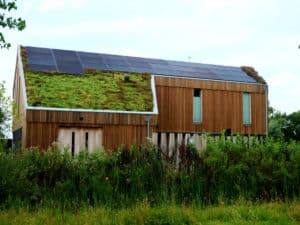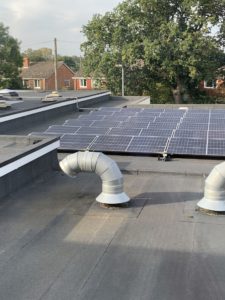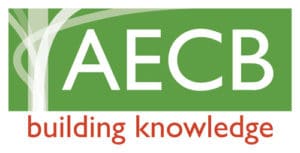The world of energy and sustainability is constantly evolving; we’ve taken a dive into the trends we think are coming to crop up more and more in 2020.
Finally, after what feels like a century, January is drawing to a close. And as the dust of “fresh starts”, New Year resolutions and reflecting on 2019 settles, we thought it was the opportune time to look ahead at 2020 and layout a few of our predictions.
Because it’s an exciting time for energy efficiency and sustainable developments. We’re in a genuine period of growth and discovery when it comes to building a more environmental society; this brings with it a good deal of change when it comes to how we approach being more “energy efficient”.
Staying ahead of the latest and upcoming trends in the energy industry is invaluable here at Buildpass.
That’s why we decided to pinpoint the areas we believe will be important within the industry throughout 2020. From renewable energy systems to the latest building regulations, we believe they will all have a major impact on the way we work, structure homes and integrate innovative developments throughout the start of this new decade.
1 – #ForPeopleForPlanet will gain serious and rapid momentum.
The start of 2020 kickstarted a decade of action towards the UN Sustainable Goals set for 2030. The conversation around it is rife, not least following the catastrophic implications of climate change with the Australian bush fires.
It’s a subject people can no longer hide from – change is no longer an aspiration, but a necessity.
We’re all being asked to contribute with global, local and people action; that means embracing energy saving techniques of all sizes.
As the movement grows bigger and bigger, we expect to see even more people looking at their homes and future developments as a tool to join and play their crucial part in the race.
2 – Our understanding and use of solar batteries will change.
We’ve seen a surge of change in net metering, up and down utility power, a drop in battery costs and varied energy management systems in recent times. We’re predicting this plethora of change will drive more customers towards choosing full-service solar and storage offerings.
This will require a bump up of skills and offerings. Solar contractors will need to expand their offering to tick these new, complicated boxes. Mobile apps for customer system monitoring will need to become more reliable. Plus, the projected performance of these full-service solar systems will need to be more realistic and have the ability to adequately predict savings.
These are tall asks; we’re interested to see whether the industry rises to the challenge.
3 – The Future Homes Standard consultation draws to an end, paving the way for 2025.
The consultation period surrounding the new Future Homes Standard is due to end at the start of February. It centres around cutting carbon emissions by installing new carbon saving technologies within the home.
With the consultation ending, we are excited to hear the announcement of the final guidelines and goals. Following that, we’re expecting serious movement across the sector to make those goals a reality.
4 – Part L of the latest building regulations will come into play and bring with it some serious changes.
Part L of building regulations focuses on the conversation fuel and power, and impacts SAP 10. It’s currently being amended, with new changes set to be announced by mid 2020.
We’re anticipating a significant adjustment in the form of switching from CO2 to primary energy as the core metric used to assess a building’s performance. This will move us towards a development approach whereby buildings are designed for prime energy efficiency from the get-go, rather than as an afterthought.
Unsurprisingly, this would be music to our ears. We can’t wait to find out whether this is the approach they decide to take. Regardless of the direction, it will mean massive changes for the building industry.
5 – The conversation around embodied energy will receive more and more traction.
The concept of embodied energy refers to the energy consumed by the entire process of building production; everything from the mining and processing of natural resources, to manufacturing, transport and product delivery.
Simply put, it’s seen as the “front-end” part of the life cycle impact of a home.
Up until now, it’s a conversation that has largely fallen under the radar. Its impact has been considered minor compared to the energy used in operating a building throughout its lifetime.
But, we think this is going to change. And if it is a factor that is brought more the forefront of public understanding, we’re going to experience a substantial change in the way we go about planning and developing properties.
6 – Renewable energies could overtake fossil fuels in the UK for the first time in history.
Last year, EnAppSys reported that renewable energies overtook fossil fuels as the primary electricity source in Europe for the first time.
The importance of this should not be underestimated. With wind and solar energy on the rise, as well as the worldwide and UK-focused goals and guidelines around sustainability coming into play, we think this could be the year renewable energy tops the table in the UK.
How incredible would that be?





















